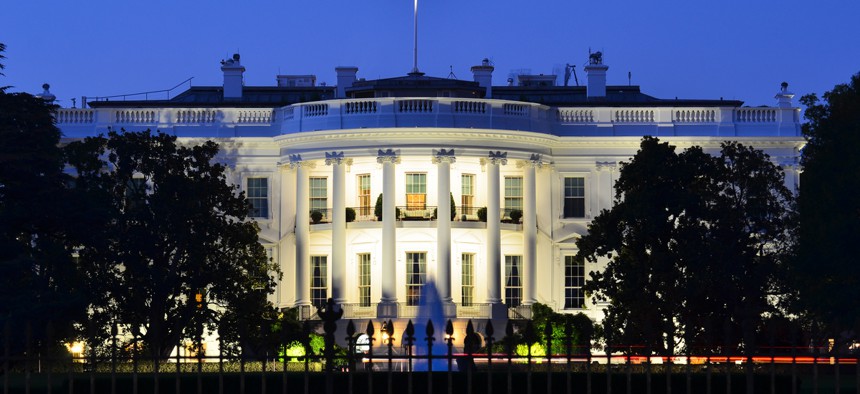White House Reorganization Addresses Cyber Workforce Gap

Orhan Cam/Shutterstock.com
The White House wants to build a single, unified strategy for strengthening the cybersecurity workforce at every agency across government.
The White House reorganization plan would force agencies to assess the strength of their cyber workforce and quickly fill the gaps they find.
The Trump administration on Thursday tasked the Homeland Security Department and Office of Management and Budget with creating a governmentwide approach for recruiting and retaining skilled cybersecurity personnel. The order, which came as part of the White House reorganization plan, aims to address the growing shortage of top cyber talent at federal agencies.
“The workforce shortage compounds the government’s challenges in responding to a constantly evolving threat environment and achieving its many IT-dependent missions,” the report said. “The government lacks a comprehensive, risk-derived understanding of which cybersecurity skillsets the federal enterprise needs to develop and which positions are most critical to fill.”
As it stands, each agency is responsible for addressing its own cybersecurity challenges, which the administration said creates “internal competition for talent... that degrade[s] agencies’ ability to defend networks from malicious actors and respond to cyber incidents.” The plan would standardize how agencies assess and meet their cyber needs.
Under the plan, the government would take stock of its entire cyber workforce by this fall using the framework created by the National Initiative for Cybersecurity Education. DHS would then work with agencies to assess their individual skill gaps and prioritize various hiring initiatives by the end of fiscal 2019.
Government has historically struggled to hire top tech professionals, but private sector’s growing demand for cyber talent compounded this problem. Today, the government employs almost five IT specialists over age 60 for each person under 30. A decade ago, the ratio stood slightly below two-to-one.
The private sector usually offers cyber specialists higher salaries and more career mobility than government, but the new approach looks to remove many of the obstacles that keep the best and brightest out of Washington.
The White House plan would allow DHS to create a new hiring track that would let it bring on cyber talent faster and offer those hires higher salaries. After working out the kinks in the Cyber Talent Management System, DHS would work to expand the system across all federal agencies.
OMB and DHS would also work to streamline the security clearance approval process for cyber professionals, look for ways to give employees the ability to move more quickly between different positions and agencies and determine whether creating short-term positions could help government respond quickly in the event of a major cyber incident.
The two agencies would also work with the Office of Personnel Management to create training programs to equip the current IT workforce with the skills to fight the latest digital threats.
Trump's reorganization plan involves more than just cybersecurity and workforce issues. It also includes proposals to digitize the government and improve federal customer experience, among others.






